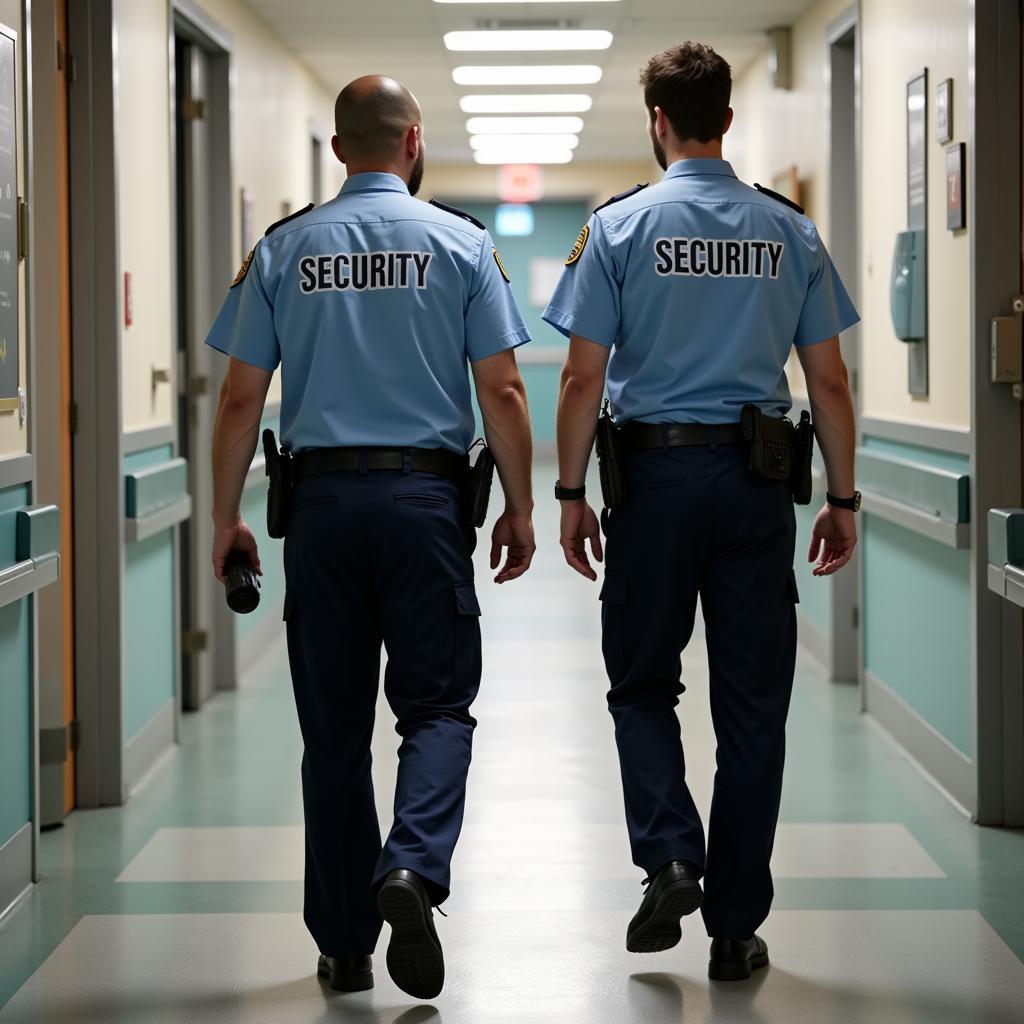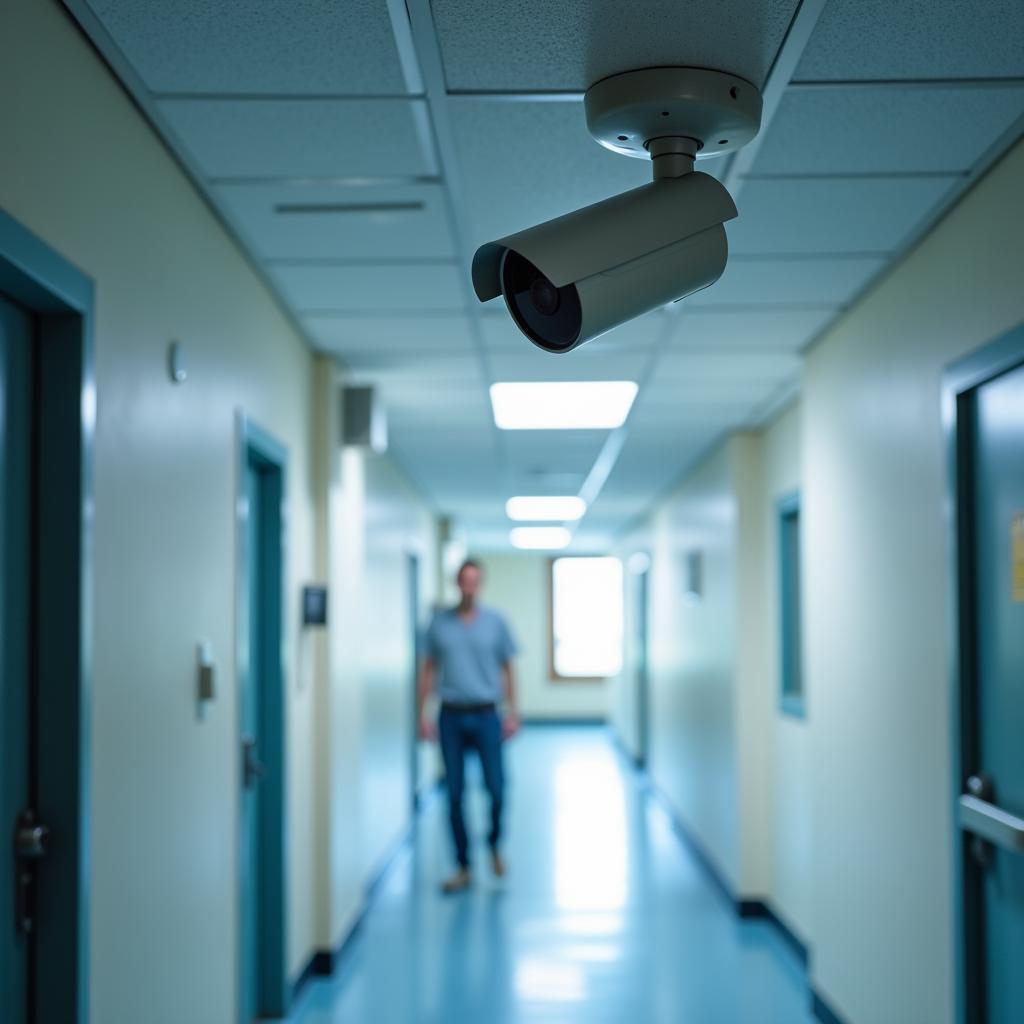Hospital Security Week is a time to recognize and appreciate the dedicated professionals who work tirelessly to ensure the safety and security of patients, visitors, and staff within healthcare facilities. It’s also an opportunity to raise awareness about the importance of hospital security and the role we all play in maintaining a safe and secure environment.
 Hospital Security Personnel Patrolling
Hospital Security Personnel Patrolling
The Importance of Hospital Security
Hospitals are unique environments that require specialized security measures. They are open 24/7, welcoming a diverse group of individuals, some of whom may be experiencing emotional distress or physical ailments. This can sometimes lead to situations where security becomes paramount.
Protecting patient privacy and confidentiality is another crucial aspect of hospital security. Medical records contain sensitive personal information, and ensuring that this data is protected from unauthorized access is non-negotiable.
 Security Camera Monitoring Hallway
Security Camera Monitoring Hallway
Key Aspects of Hospital Security
A comprehensive hospital security plan typically encompasses various elements:
- Access Control: Limiting entry points and implementing electronic access systems helps regulate who enters restricted areas, protecting patients, staff, and sensitive medical equipment.
- Surveillance Systems: Strategically placed security cameras act as a deterrent to crime and provide valuable evidence in case of incidents.
- Emergency Preparedness: Hospitals must be ready to handle a wide range of emergencies, from natural disasters to active shooter situations. Regular drills and training ensure staff are prepared to respond effectively.
- Cybersecurity: With the increasing reliance on technology, protecting patient data and hospital systems from cyber threats is crucial. Robust cybersecurity measures are vital to maintain patient privacy and operational integrity.
The Role of Everyone in Hospital Security
While dedicated security personnel play a vital role, maintaining a safe and secure hospital environment is a collective responsibility.
- Patients and Visitors: Following hospital rules, reporting suspicious activity, and being respectful of staff and other patients contribute to a secure atmosphere.
- Staff Members: Wearing ID badges, being vigilant of their surroundings, and reporting any security concerns promptly are essential for maintaining safety.
Hospital Security Week 2023: A Time for Recognition and Action
Hospital Security Week 2023 is an ideal time to acknowledge the hard work and dedication of security professionals in healthcare. It’s also an opportunity to reflect on the importance of hospital security and how we can all contribute to a safer environment.
Let’s work together to ensure that hospitals remain places of healing and comfort for all.
Frequently Asked Questions about Hospital Security
- How can I report suspicious activity at the hospital? Look for clearly marked signs or contact information for security personnel. Most hospitals have dedicated phone numbers or emergency buttons for reporting security concerns.
- What should I do if I witness a crime in progress? Your safety is paramount. Do not intervene directly. Move to a safe location and immediately call 911 or the hospital’s emergency number.
- What measures are in place to protect patient privacy? Hospitals have strict policies regarding the handling of patient information. Access to medical records is restricted, and staff members receive training on patient confidentiality.
For more information about specific hospital security policies and procedures, please refer to Hospital Security Week 2023, Saint Francis Memorial Hospital Parking, Frisbie Hospital Medical Records, Yale New Haven Hospital Volunteer, or How to Become a Navy Hospital Corpsman.
Need immediate assistance? Contact us at Phone Number: 02437655121, Email: [email protected] Or visit us at: 298 Cau Dien St., Minh Khai, Bac Tu Liem, Hanoi, Vietnam. Our dedicated customer support team is available 24/7.